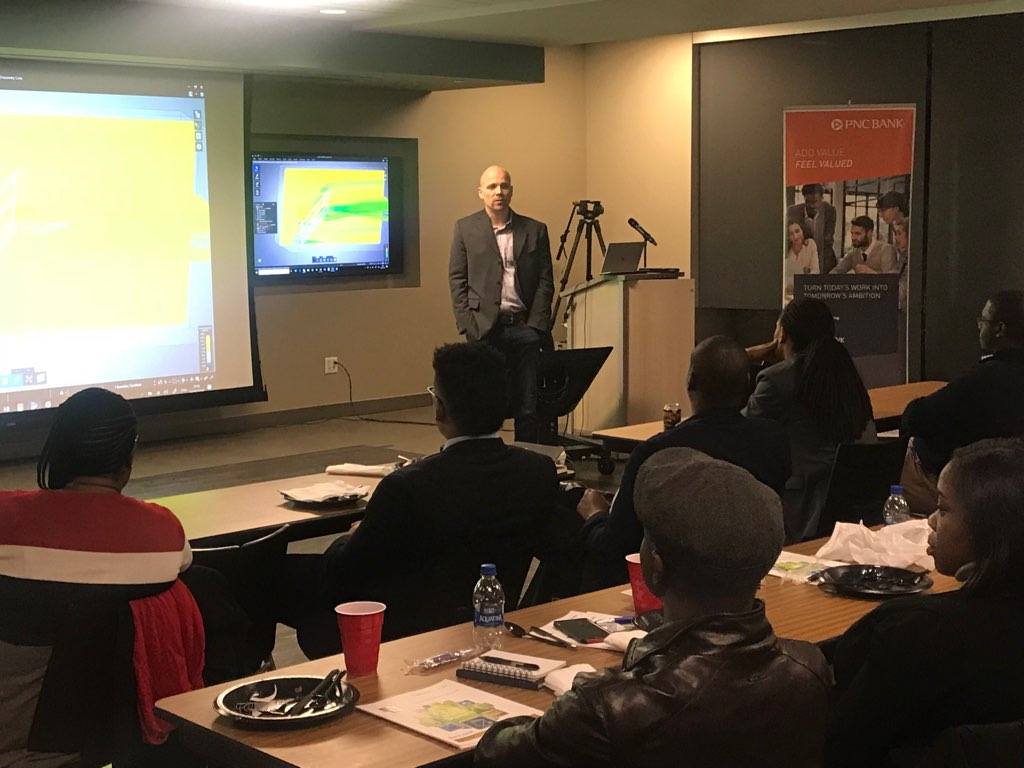
About
The idea of a Black Society of Engineers was conceived at Purdue University by undergraduates Edward Barnette and Fred Cooper in 1971. The goal was to establish a student organization that would serve as a support group and help improve the recruitment and retention of black engineering students.
With Barnett serving as the first President, and Dr. Arthur J. Bond Ph.D the group gained momentum and soon began to flourish. By 1974 Barnett and the BSE saw very active participation, particularly from the soon to be founders of NSBE: Edward A. Coleman, Anthony Harris, Brian Harris, Stanley L. Kirtley, John W. Logan Jr. and George A. Smith. These men are now known as “The Chicago Six”.
By 1975 Anthony Harris was now President of the group and it was during his term we saw the first renaming. Instead of the Black Society of Engineers the group now went by the Society of Black Engineers (SBE). It was also during this time that the group saw an increase in on-campus success and the initial steps to going national were taken. Harris wrote letters to the university presidents and deans of 288 accredited engineering programs explaining the SBE concept and asking them to identify black student leaders, organizations and faculty members who could support the Society’s efforts on a national basis. About 80 schools responded many of whom had similar black student organizations. And from April 1012, 1975 48 students representing 32 of the schools met at Purdue which is now seen as the Society’s first national meeting. It was here the second renaming took place and SBE became the National Society of Black Engineers (NSBE).
Today the national annual meeting has become the nation convention hosting more than 10,000 attendees yearly. We have grown from 6 to more than 17,000 members in over 500 chapters around the world. Our operations have also moved from Purdue University to now being headquartered in Alexandria, VA.
Mission Statement
To increase the number of culturally responsible Black Engineers who excel academically, succeed professionally and positively impact the community.
Vision Statement
NSBE has grown from six to more than 17,000 members, and its annual meeting has blossomed into the Annual Convention, hosting more than 13,000 attendees. NSBE has more than 500 active chapters in the U.S. and abroad: 148 NSBE Jr. (pre-collegiate), 291 collegiate and 84 NSBE Professionals chapters.
Headquartered in Alexandria, Va., NSBE offers academic excellence programs, scholarships, leadership training, professional development and access to career opportunities for thousands of members annually and provides opportunities for their success that remain unmatched by any other organization.
NSBE’s mission is “to increase the number of culturally responsible Black Engineers who excel academically, succeed professionally and positively impact the community.” The main goal of the Society’s current 10-year Strategic Plan is to lead the United States to produce 10,000 Black Engineers annually by 2025.
Executive board
Mission
To be the preeminent home to the minority engineers and engineering enthusiasts throughout Pittsburgh, Pennsylvania.
Board Members
Nahom Beyene
President
Mechanical & Biomedical Engineering
Glenn E Smith Jr
Vice President
Electrical Engineering
Folake Owoloja
Secretary
Civil & Geotechnical Engineering
Jamard Smith
Programs Chair
D’Shawn Thomas
Treasurer
Civil & Structural Engineering
Events
Professionals BBQ
Carnegie Mellon University
Sept 9, 2018
Top Golf
Top Golf - Pittsburgh
Sept. 27, 2018
GBM - Financial Finesse
ANSYS
October 30, 2018
Membership
Any individual who has received a degree in a science, technology, engineering, or math (STEM) discipline is eligible for NSBE Professional membership. However, if you are a professional, but did not receive a degree in any of the STEM fields, you are still eligible for membership as a NSBE Professional Affiliate member.
GRADUATE STUDENTS
Graduate students can join as NSBE Professional members OR Collegiate members. We recommend you choose your membership type based on your level of involvement in NSBE. If you do more NSBE interaction on a University campus – Collegiate membership may be right for you. If instead, you interact more with local professionals or feel like the undergraduate chapter doesn’t fit your needs, we welcome you as a NSBE Professional member and encourage you to join our chapter. Also, first year professional membership dues are waived for NSBE Collegiate members upon graduation with an undergraduate degree within the first year of degree completion.
MEMBERSHIP TERM
The membership term is one year from August 1 – July 31 of the following year.
When you pay for your membership, check the “Auto renew” box to automatically renew your membership this year. Never be without membership benefits again!.
MEMBERSHIP BENEFITS
Leadership and Professional Development and Training via workshops and seminars
Networking opportunities with other professionals and Fortune 500 companies
KAPLAN test preparation workshops, services and materials.
Subscription to NSBE Magazine offering the latest industry news and articles tailored to individual areas of engineering. ($20 value)
Discount Registrations for conferences and events including the National Convention/Technical Professionals Conference held annually in March
Access to NSBE’s Job Placement Center (JPC) for free resume posting to top engineering companies and the ability to search for full-time job opportunities.
Access to scholarships/fellowships
Mentoring and Community Outreach opportunities
Access to special Interest Groups (SIGs) that address specific areas of engineering, i.e. Biomedical Engineering, Environmental Engineering, etc…












